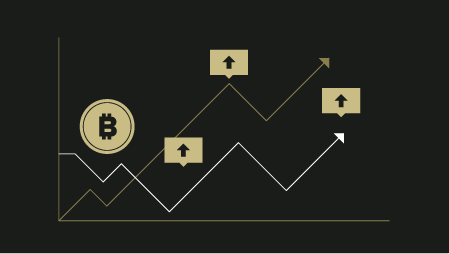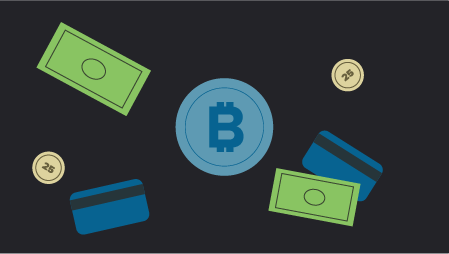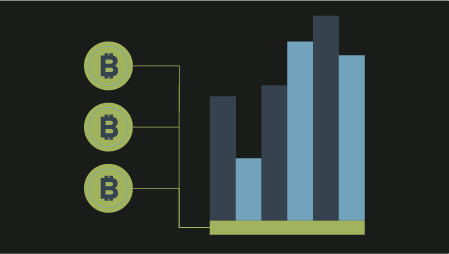Digitalization is the need of almost every single industry today; however, there are industries where this technology is the basic and crucial to surviving in the market. One such industry is banking industry. Time is crucial to all aspects of life. There are several projects going on in the industry which requires efficient time management, and to accomplish these projects within time is a great challenge on its own. Any delay in the process can lead to huge financial loss for the industry. The industry still involves a lot of paperwork which also raises several complicated issues. Most of the industries today leverage the power of technologies to accomplish workflow, streamline work processes and boost productivity. If we talk about secret weapon of FinTech, i.e. blockchain technology, how will it disrupt banking sector?
Blockchain in FinTech and Banking Sector
Blockchain technology has introduced the new monetary exchange in the form of cryptocurrencies and this is being appreciated in the banking sector as well. The cryptocurrencies such as bitcoin can have any dual impacts either a positive impact or negative impact. However, the exact cause will be determined by the fact that whether we are accepting these cryptocurrencies or not.
According to the present scenario, major companies like Microsoft, Amazon and other top brands have started accepting payments in the form of Bitcoin, and this has led to the encouragement of the small and medium business owners so that they can also do the same.
Positive impacts of blockchain
Well as compared to the conventional payment methods like credit cards, wire transfers, and other cryptocurrencies like Bitcoin provides quicker and less expensive ways to accept the payment by the customers. These transactions that are occurring provides more power to the retailers as compared to the consumers.
Each transition is final
Cryptocurrencies such as Bitcoin, they follow the blockchain technology which ensures authenticity as it blocks the transaction. No alteration can be made in the transactions that are done through these cryptocurrencies. Thus each and every transaction is final.
This technology provides no way to the consumer by which they can bargain over the charges and this also helps retailers by providing better control over their return policies. Also, this technology will prevent any type of fraud that can occur through fake credit cards.
No processing fees
Whenever we go for a digital payment it charges some processing fee. This occurs due to the presence of an intermediary that is present for the regulation of the payment and takes the charge. Well, this can be avoided in the case of cryptocurrencies as there is no intermediary. It is decentralized so there are no extra charges for the transactions. Thus, this helps in saving unnecessary expenditures and transaction fees.
Earning can be done even by exchanging the bitcoins with the local currency which will be a buy and sell policy. The exchange will buy cryptocurrency at selling price from you and will then sell it to some other at buy price. What you earn with this can be estimated by taking out the difference between the buy price and the sell price.
Provides more options to the consumers
Acceptance of cryptocurrency will provide the customer more payment options which will improve the buying experience of the customer. In a survey it was observed that customers use as many as 5 options to initiate payment. With the acceptance of the cryptocurrency it is likely to attract more customers towards you.
No intermediators involved
With the use of blockchain there is no third-party involvement, thus blockchain acts as a trust keeper here. It will also lead to the decrease in the cost of the overheads when online interaction occurs among parties.
High speed transaction
The payment speed is quite fast for cryptocurrencies. As for the Bitcoin it takes 10 minutes maximum for the completion of the payment. There are also other cryptocurrencies like Ethereum and Litecoin which verify the transaction in just 20 seconds. Thus, the currency will take no longer than 20 seconds to get deposited into the accounts. These transactions are much faster than credit cards which takes 2-3 days to clear.
The use of the blockchain technology in banking sector grants the user the authenticity of any document that is registered in the system, thus it provides existence proof by adding data in form of transaction. In case of blockchain the data once entered is fixed so this property will allow result storage in a more secure way as it is not possible to modify the entered data.
Resolving iIdentity theft issues
Blockchain is used to develop a platform that protects a person’s identity from theft, and also reduce fraudulent activities. This technology can also help organizations build strong blockchains that handle the issues of authentication and reconciliation encountered in several industries.
Trade finance
- Financial documents linked through Blockchain are reviewed and approved in real time, reducing the time it takes to initiate shipment.
- Blockchain provides real-time transparent view for short-term financing
- Blockchain do not need a trusted intermediary to assume risk, removing the need for correspondent banks
- Blockchain technology will eliminate the risk of double spending
- The title available within Blockchain provides transparency into the location and the ownership of goods
Signing off
Blockchain has shown a lot of potential for the banking sector and has numerous benefits. Nevertheless, there is no doubt that blockchain has taken up the banking industry by storm and the landscape of the industry is quite changed with its arrival in the market and certainly, the technology is going to progress more in the finance and banking and will be the key pillar of change in the banking sector.



